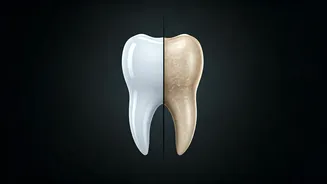Embrace Daily Movement
Incorporating physical activity into your daily life is crucial for overall well-being. Regular exercise can reduce the risk of chronic diseases, improve
mood, and boost energy levels. Start by finding activities you enjoy. It could be anything from a brisk walk in the morning to dancing or playing a sport. Aim for at least 30 minutes of moderate-intensity exercise most days of the week. This could include activities that increase your heart rate and make you breathe a little harder, like cycling or swimming. Break up your exercise into smaller chunks if that fits your schedule better. Even short bursts of activity throughout the day can make a difference. Make it a habit to use the stairs instead of the elevator, or walk during your lunch break. Consistency is key, so find what works for you and stick with it.
Nourish with Nutrition
A balanced diet is just as vital as exercise when it comes to maintaining health. Focus on consuming a variety of nutrient-rich foods, including fruits, vegetables, whole grains, and lean proteins. Fruits and vegetables are packed with vitamins, minerals, and antioxidants, which protect your body from damage. Whole grains provide fiber, which aids digestion and keeps you feeling full. Lean proteins are essential for building and repairing tissues. Limit your intake of processed foods, sugary drinks, and unhealthy fats. These can contribute to weight gain and increase your risk of chronic diseases. Prepare your meals at home more often to control portion sizes and ingredients. Read food labels carefully to make informed choices. Ensure you drink adequate water throughout the day. It helps with various bodily functions, including digestion and nutrient absorption.
Prioritize Mental Well-being
Taking care of your mental health is equally as important as physical health. Stress, anxiety, and depression can have negative impacts on your physical health and overall quality of life. Practice relaxation techniques like deep breathing or meditation to manage stress. Engage in activities you enjoy, such as reading, listening to music, or spending time in nature. Maintain social connections by staying in touch with friends and family. Reach out to loved ones if you're feeling overwhelmed. Get enough sleep. Aim for seven to nine hours of quality sleep per night. Sleep is essential for both physical and mental recovery. Consider incorporating mindfulness into your daily routine. Mindfulness can help reduce stress and improve focus. If you're struggling with your mental health, seek professional help. Talking to a therapist or counselor can provide support and guidance.
Develop Sustainable Habits
Building healthy habits takes time and effort. Don't try to change everything at once. Start by making small, manageable changes that you can stick with. Set realistic goals. Overly ambitious goals can lead to discouragement. Instead, break your goals into smaller steps that are easier to achieve. Track your progress. Monitoring your progress can help you stay motivated and make adjustments as needed. Celebrate your successes. Acknowledge and reward yourself for achieving your goals. Find a support system. Having friends, family, or a community who encourage and support your healthy lifestyle is invaluable. Be patient with yourself. It's normal to have setbacks. Don't get discouraged if you slip up. Just get back on track as soon as possible. Focus on long-term sustainability rather than quick fixes. Make health and fitness a lifestyle rather than a temporary undertaking.













